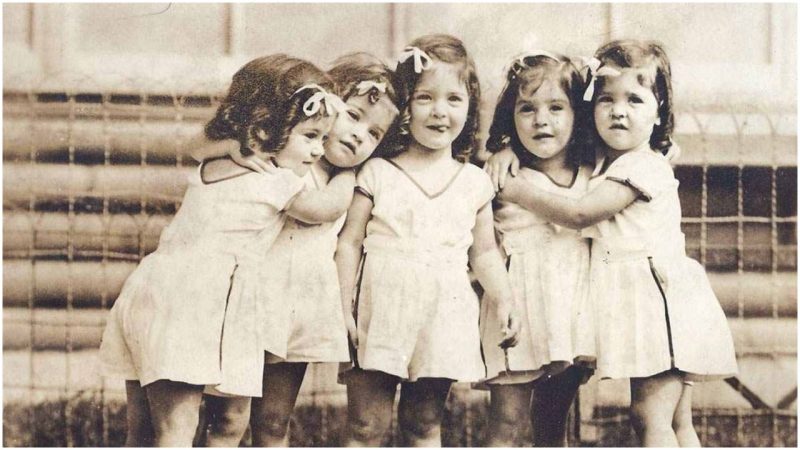Modern medical fertility treatments have increased the number of multiple births and turned such births into, if not a common occurrence, than certainly more than a rarity. According to the statistical data presented on one website, almost 36 percent of twin births and 78 percent of triplets, quadruplets, and quintuplets in the United States are the result of fertility treatments.
In past decades, before such treatments, multiple births could have been presented as a real phenomenon by those who pushed the young ones into the eyes of the world without any considerations of the negative consequences that the children might face. Such was the case of the Canadian Dionne quintuplets, who became stars on Day One.
The five identical sisters were born in 1934, in northern Ontario, to the family of Oliva-Edouard and Elzire Dionne. Cécile Marie Émilda, Émilie Marie Jeanne, Marie Reine Alma, Yvonne Édouilda Marie, and Annette Lillian Marie were two months’ premature, delivered by Dr. Allan Roy Dafoe, who initially feared they wouldn’t make it. Luckily, all of them survived and it didn’t take long before the news about the amazing quintuplets began to spread.
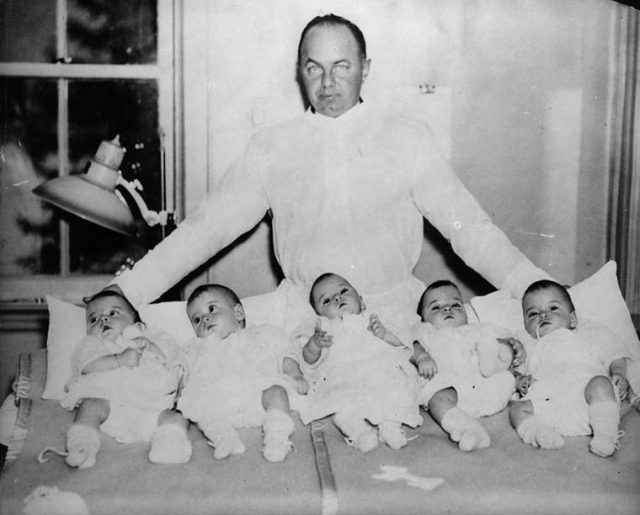
The Dionnes could hardly make ends meet. These unfortunate circumstances made the government of Ontario remove the quintuplets from their parents and transfer custody to Dr. Dafoe.
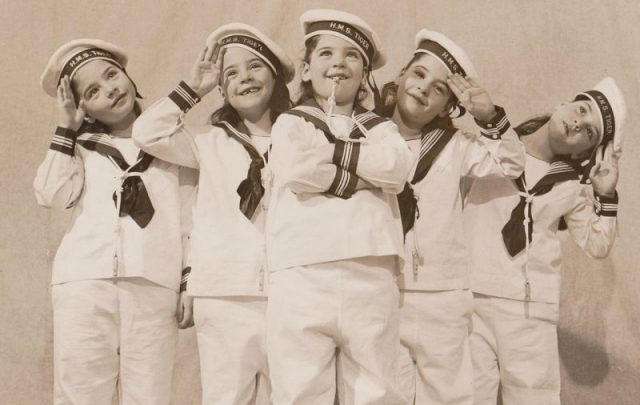
The doctor housed them in his “Dafoe Hospital and Nursery,” which, at first glance, seemed like a regular welfare institution. But it included a few areas which were specifically designed by Dr. Dafoe for public observation of the girls. Reportedly, this unethical conduct was supported by the Ontario government. The girls’ lives were that of guinea pigs–locked, isolated, and examined.
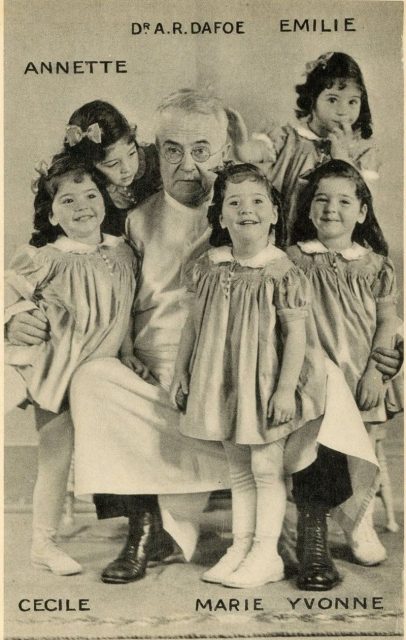
Their daily schedule was quite limited, and each moment was planned. Dr. Dafoe created a tour and publicly exhibited the quintuplets several times a day. The public was very interested in the girls, and that interest was effectively exploited and commercialized by selling products such as Dionne dolls.
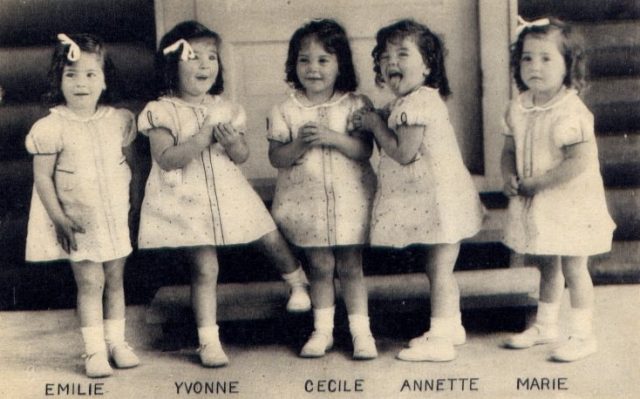
The sisters hardly had any contact with anyone except the hospital staff and their visitors. It took nine years before they saw their parents again in 1943, when their mother and father succeeded in winning back custody. Nevertheless, this didn’t bring a happy ending to the quintuplets’ tragic lives, since after that it was their parents who exploited them.
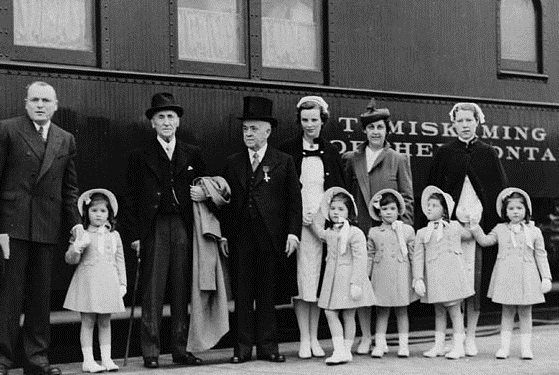
First, using the girls’ trust fund, they bought a mansion, and it didn’t take long before the parents started sending the girls on tour in order to make more money. In later interviews, the sisters claimed to have been physically and mentally abused by their biological parents, who pressured them to do a great deal of physical labor.
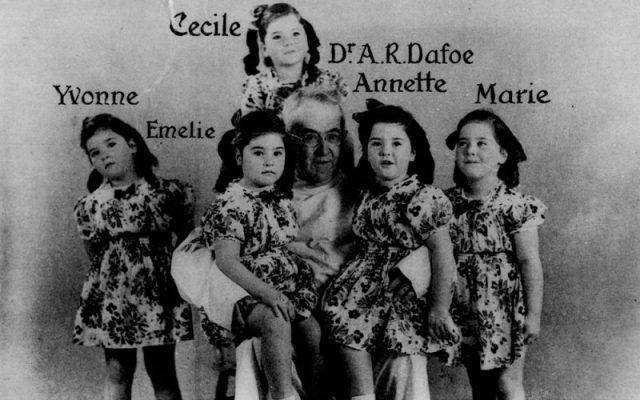
When they turned 18, the girls left their family home, trying to forget the unhappiness they’d endured. They ceased contact with their parents, and Dr. Defoe too. Sick of the spotlight which accompanied them through their entire childhood, the sisters wanted quiet, ordinary lives. One of them became a nun, another a librarian, still another an artist; three of them married and had children.
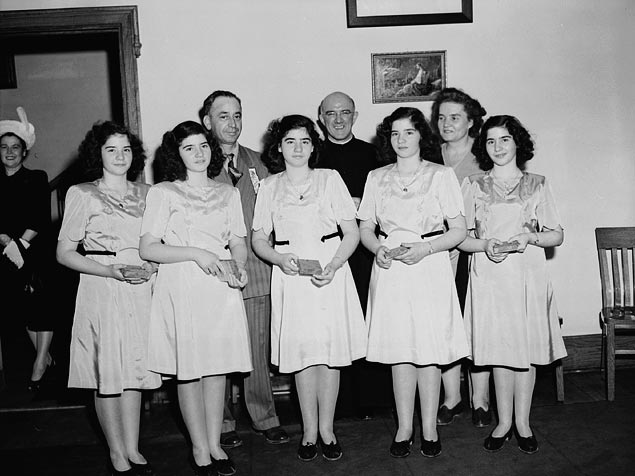
Today, only two of the sisters are alive. Annette and Cécile lived together in Ontario until recently, but Cécile’s poor health condition has made her a permanent ward of the state in a seniors’ home in Montreal North.
Related story from us: Chang and Eng Bunker: The original Siamese twins had 22 children by 2 sisters
The Montreal Gazette reported that the Ontario government agreed to pay $4 million to the sisters in 1998, but this windfall turned into a nightmare when Cécile’s son Bertrand Langlois, 55, the third of four children, used a large sum of the money for his own investments and, although he promised to cover his mother’s monthly fees, seven years ago he cut ties with her and disappeared. His mother has tried to reach him ever since, but each of her attempts was futile. Nowadays, she lives on a government pension.
